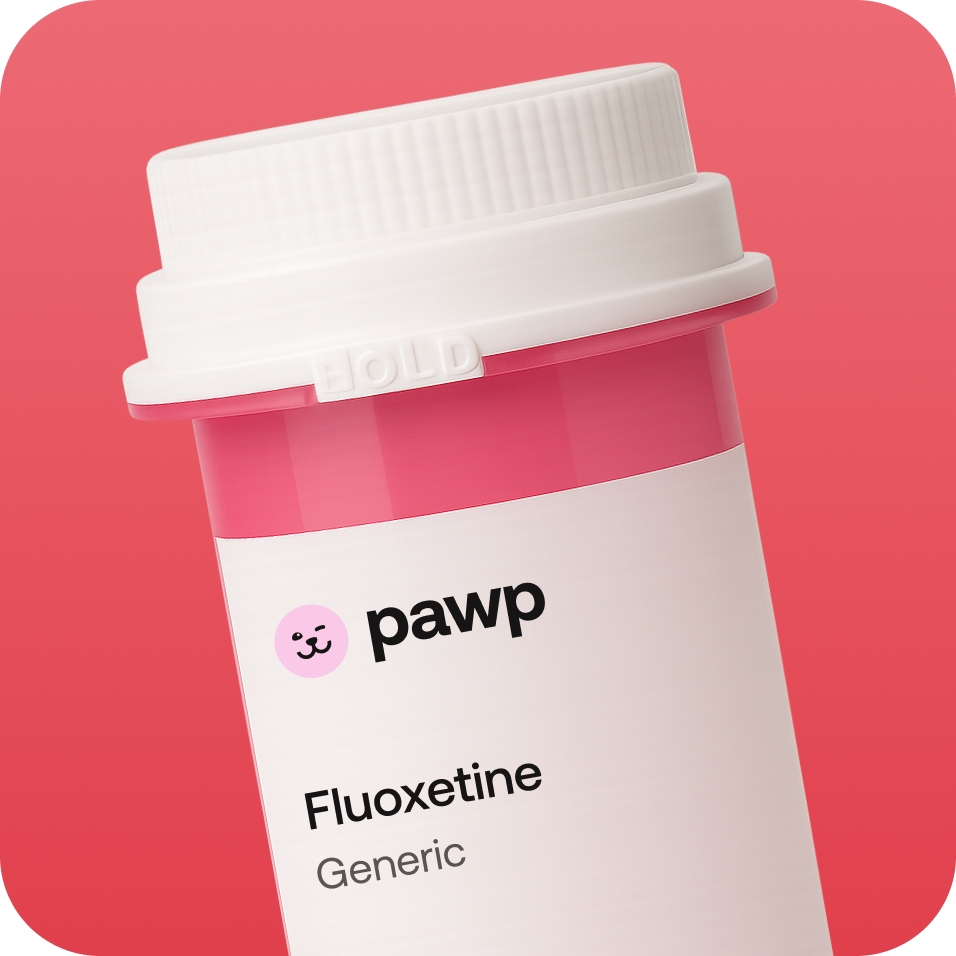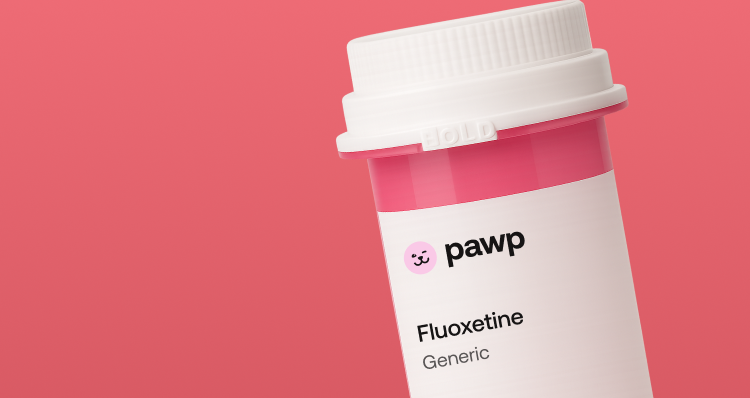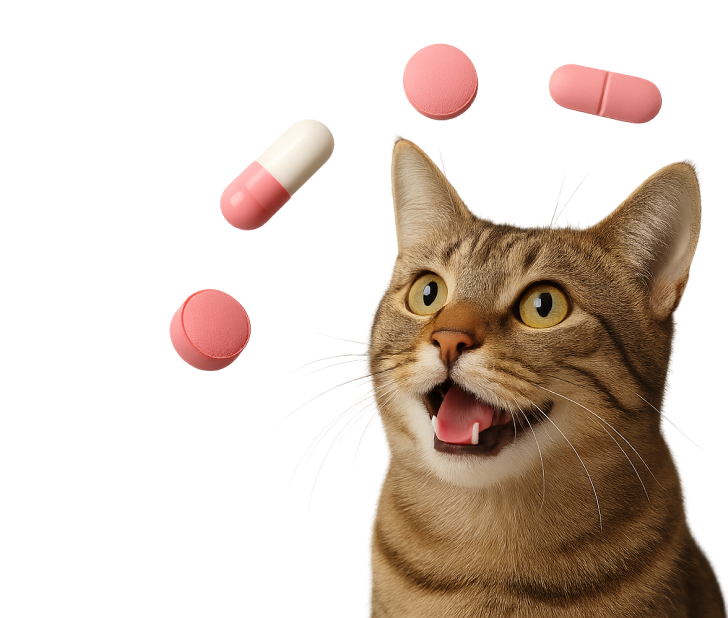Get a fluoxetine prescription for cats
Fluoxetine is a vet-prescribed medication for anxiety and behavioral issues in cats. Get a prescription online for just $35—no in-person vet visit needed.
- Same-day visits available
- Licensed vets in your state
- 80% cheaper than an in-person visit


How to get prescriptions online with Pawp
Pawp makes it easy to get pet prescriptions online. As a member, you can chat with a licensed vet, get your pet evaluated, and receive an Rx, all from home.
Step 1
Start your free trial with Pawp
Pawp members get 24/7 on-demand vet care and can book an Rx visit at anytime.

Step 2
Video chat with a local vet
Step 3
Get your prescription
Step 4
Shop your preferred pharmacy
What is fluoxetine?

Fluoxetine is a prescription antidepressant used in cats to treat behavioral issues like anxiety, aggression, and inappropriate urination. It works by increasing serotonin levels in the brain.

Why vets prescribe fluoxetine for cats
- Reduces anxiety-related behaviors like hiding or vocalizing
- Helps manage aggression toward other pets or people
- Treats inappropriate urination linked to stress
- Supports long-term behavior modification plans
What is fluoxetine used for in cats?
Generalized anxiety
Improves quality of life for cats that are consistently anxious
Aggression toward other pets
Helps reduce hostility or aggression in multi-cat homes
Stress-related urination
Treats urinating outside the litter box caused by emotional stress
Obsessive grooming
Addresses compulsive licking that leads to fur loss or sores
Noise sensitivity
Reduces reactions to loud sounds like fireworks or thunder
Behavior modification support
Used with training plans to reinforce calm behavior
What Pawp members are saying
Download the Pawp app to get started
- Prescription visits
- 24/7 on-demand vet care
- Emergency Protection
- Pet health monitoring
Frequently Asked Questions
Is fluoxetine safe for cats?
How long does fluoxetine take to work in cats?
What are the side effects of fluoxetine in cats?
Can fluoxetine be used long-term in cats?